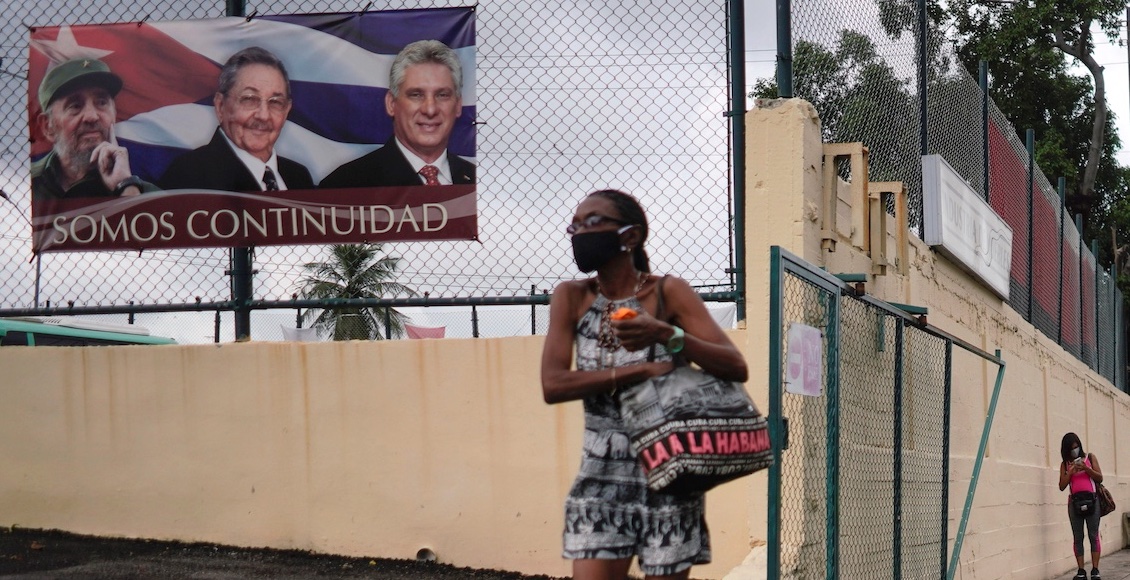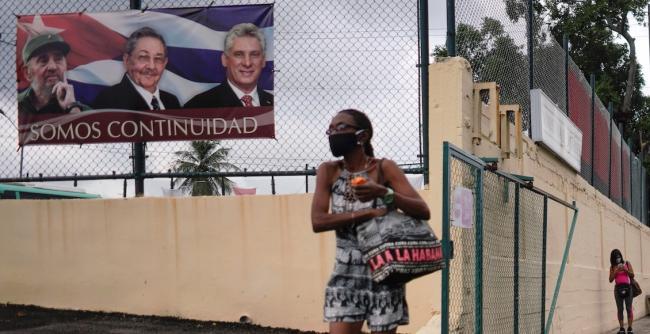Raul Castro’s announcement at the 8th Congress of the Cuban Communist Party (PCC) that he is stepping down as the party’s Secretary General marks the formal end of an era in Cuban history.
The 89-year-old Raul took over as Secretary General a decade ago pledging extensive reforms to repair the country’s moribund economy. But those reforms have failed miserably, and power now passes to Castro’s handpicked successor, President Miguel Diaz-Canel, at a time when Cuba faces its worst economic and political in the six decades of communist rule.
Diaz-Canel’s charge is to maintain continuity and party control, but Castro’s exit and the severity of the crisis set up the first realistic possibility for a political transition since his brother Fidel seized power in 1959.
As usual, the Cuban government blames U.S. sanctions for its economic troubles, but they’re just one of many factors. Venezuela’s economic collapse dried up more than $5 billion a year in economic aid, and the pandemic gutted the tourism industry that was a principal source of hard currency. Most importantly, the structural inefficiencies of Cuba’s command economy have caused chronic currency and export shortages that Raul has failed to address over the last decade.
The result has been an economic crisis more severe than the "special period" of the 1990s following the collapse of the Soviet Union. Cuba is running out of food, according to one report; there is no medicine in the pharmacies; and the Cuban health system, considered "the jewel in the crown of official propaganda," is now "on the brink of collapse."
The regime has responded by imposing a system of monetary reform called Tarea Ordenamiento, or the Ordering Task, that has made the crisis even worse. Market analyst Emilio Morales reports that one of the "disastrous" effects of this reform has been to wipe out the savings in dollars that citizens have deposited in Cuban banks, while another has been to sound "a death knell" for the cuentapropistas, the self-employed small entrepreneurs legalized under Raul’s reforms who have been the most productive part of Cuba’s economy.
According to Pavel Vidal, a professor at the Javariana University in Colombia who once worked for the Cuban central bank, the monetary reform "will sink the real value of short-term workers’ wages between 15 and 50 percent." He also predicted a “historic” inflation of between 474 and 952 percent.
The terrible hardships Cubans are now experiencing have caused an upsurge in protests that is unprecedented in the communist country. The Cuban Conflict Observatory reports that the monthly number of protests has steadily increased, from 42 in September to 159 in in February. The rise of cell phones and social media since 2018 have been important mobilizing tools that also led to scores of citizen-recorded videos–including one shot on Sunday, April 4, which showed neighborhood residents yelling "abusers" and "killers" at the police.
On April 10, the Patriotic Union of Cuba (UNPACU), the island’s largest opposition group, called off a collective 21-day hunger strike, declaring victory after the regime ended a police “siege” of its headquarters. Priests and lay Catholics across the island then produced a short video of solidarity calling for respect for life and greater freedom in Cuba.
The spiritual core of the Cuban uprising has been the San Isidro Movement (MSI), which emerged spontaneously in 2018. Many of its members are also of Afro-Cuban descent. On November 26, its headquarters were raided by State Security agents to interrupt a hunger strike that MSI members were carrying out to demand the freedom of rapper Denis Solis.
A day later, on November 27, 300 artists and musicians met in front of the Ministry of Culture to protest the arrest of Solis and repression against artistic freedoms. Those artists today constitute the 27N Movement.
Internationally acclaimed Cuban artists based abroad and members of the San Isidro Movement have produced Patria y Vida, a rap-song anthem of resistance against "your evil revolution," declaring that "we are the dignity of an entire people trampled." The anthem has been viewed on YouTube over 4.5 million times since it was released on February 17, the song’s title has been spray-painted on street walls and houses, and now people often confront the authorities by saying, "I’m with Patria y Vida."
In anticipation of the 8th Congress, the 27N movement issued a manifesto calling for political and civic freedoms, the release of political prisoners, the legalization of independent media, and economic reforms, including private ownership and initiative. These same demands are contained in the petition of the Varela Project –signed by more than 11,000 Cuban citizens– that Oswaldo Paya delivered to the Cuban National Assembly in May 2002. Paya’s leading associates on the Varela Project and other dissidents were arrested ten months later during Cuba’s Black Spring, and Paya himself was killed on July 22, 2012, when a government vehicle rammed his car when he was traveling in eastern Cuba. The time has come to revive these demands and end Cuba’s nightmare of dictatorship.
This is This is the context for the development of the Biden administration’s Cuba policy. Juan Gonzales, the principal director for the Western Hemisphere at the National Security Council, signaled earlier this month in an interview with CNN that human rights will be a priority for the Administration. "Joe Biden is not Barack Obama in policy towards Cuba," he said. "The Cuban government has not responded in any way" to the Obama opening in 2014 that normalized relations between the two countries, and "the oppression against Cubans is even worse today than perhaps it was during the Bush administration."
With Raúl Castro’s departure and Cuba in a deep and irreversible crisis, the time is ripe for change. A focus on free elections and a democratic transition in Cuba is now both timely and urgent.
As the Patria y Vida anthem declares, "it’s over" for the regime: "The people are tired of putting up with it. We are all waiting for a new dawn." It can’t come too soon.
Carl Gershman is the President of the National Endowment for Democracy.

